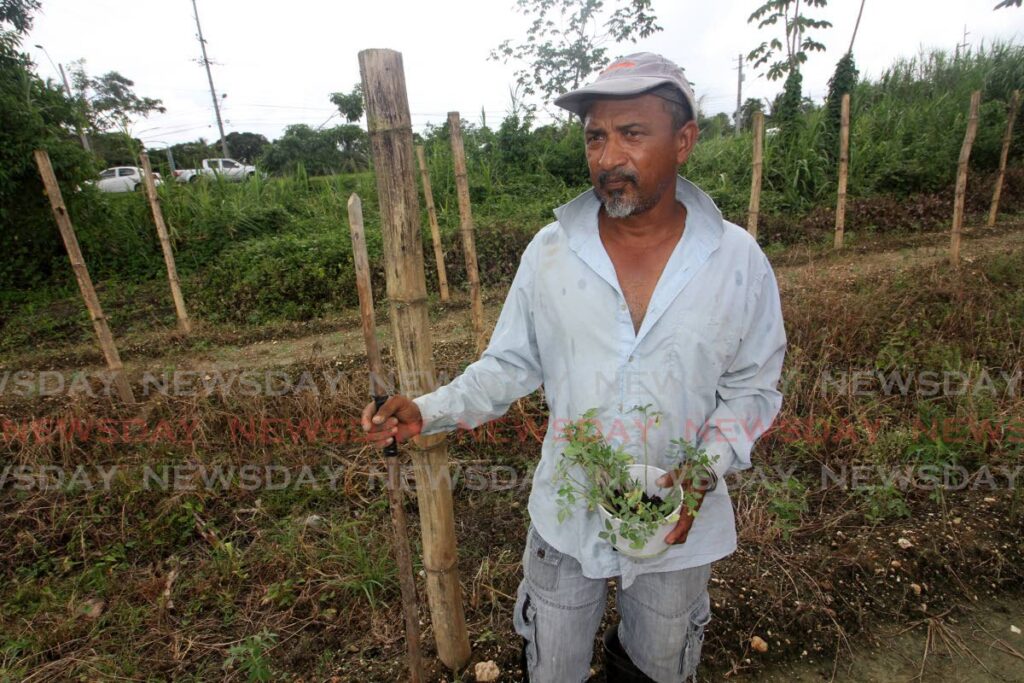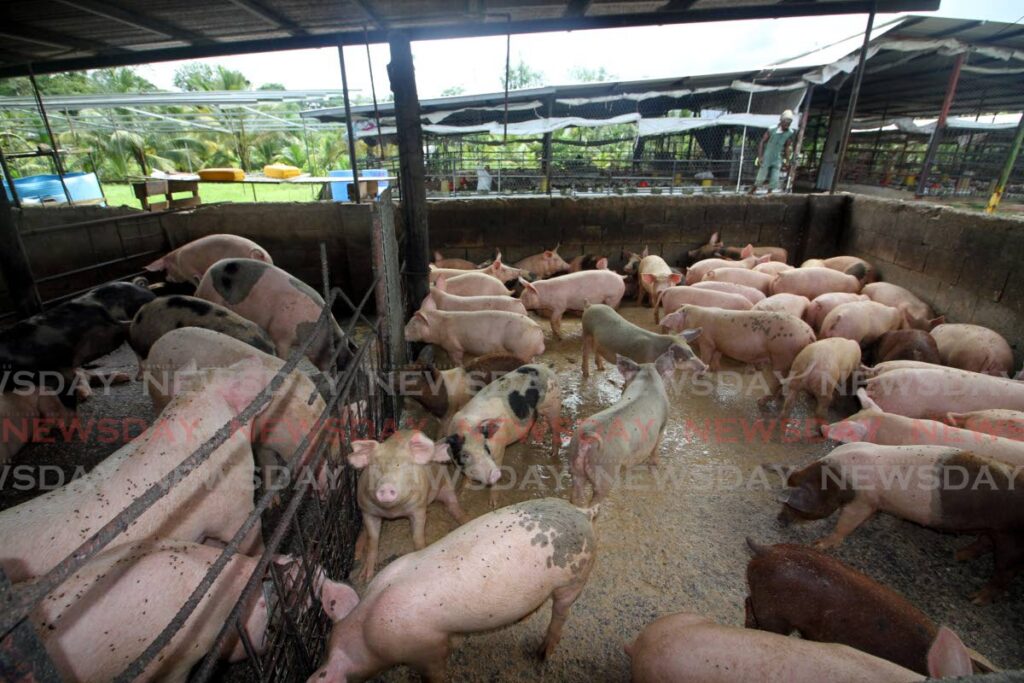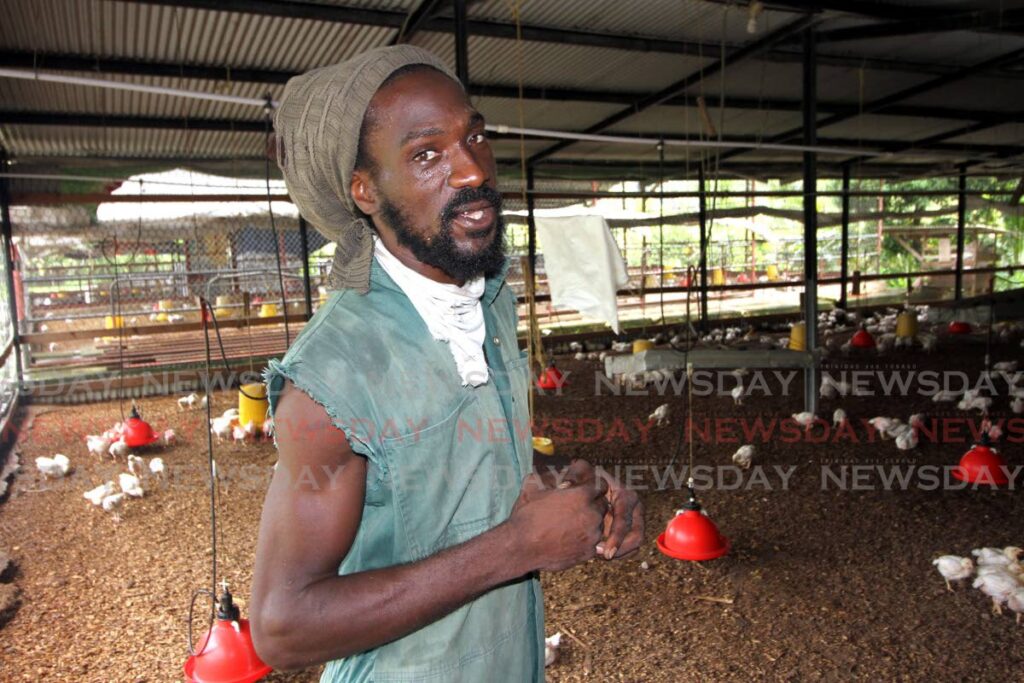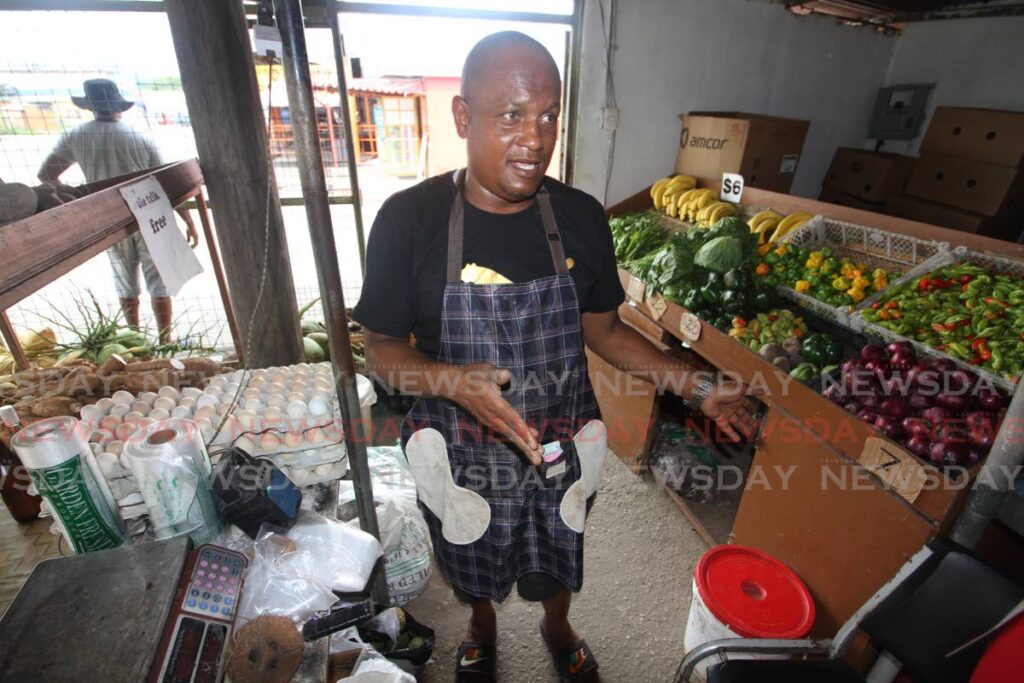
With an average food import bill of more than $5 billion and global shocks increasing the prices of not just imported food but raw materials to produce food locally, it would not be a surprise if reducing the food bill was one of the priorities of Government in the budget on Monday.
While many strides have been made by Caricom to reduce the food import bill – there’s the plan to cut imports by 25 per cent by 2025 – through the development of support systems in the region, including a series of expos which connected technocrats with farmers and food producers, locally, farmers still struggle. Prices of materials, a lack of equipment and difficulty in accessing support because of bureaucratic policies are keeping farmers – especially those small farmers who occupy less than 20 acres of land and farmers without registration – from producing at their optimum.
That doesn’t mean that the food import bill cannot be reduced, in fact many believe that TT has a local capacity, if not to eliminate its billion-dollar food import bill to bring it down by a significant number.
But farmers need more support. Farmers who contribute significantly to the food basket of the nation but are not registered, for one reason or another, do not have access to support mechanisms like loans and government grants. This is why different bodies in the agriculture industry – from farmers to suppliers to merchants and distributors – all agree that for TT to reduce its food import bill, government must level the field for small farmers.
Macaroni flakes and milk for pigs
When Business Day visited pig and chicken farmer Brian Maturine in Wallerfield, earlier this week, he had just finished storing several gallons of milk in massive water tanks for his pigs. Maturine, whose three-acre farm is home to between 6,000 and 7,000 chickens and more than 100 pigs, has hundreds of mouths to feed, and has concerns about the price of feed.
“All 100 pigs have to eat twice a day,” Maturine said. “I use two or three bags of pellets every day, and about 10 buckets of milk.”
With the price of feed shooting up during covid19, and remaining volatile in light of the Russian/Ukrainian war adding to the shocks in the grains sector worldwide, Maturine, like many other farmers, has to be inventive to ensure his pigs are fed.
“The price of feed sky-rocketed over the covid19 period,” Maturine said. “Pellets were between $90 and $100 before covid19. Now it has gone up to about $130 per bag.

“Plenty pig farmers learned from before covid19 how to subsidise their feed. They would go to the cracker factory or macaroni factory and buy rejected or left-over produce. I would buy milk that had been rejected because of poor packaging and mix it with the feed and the crackers, and it would make a kind of paste. It’s like cornflakes and milk for pigs.”
The processes for looking after the chickens are different. Maturine said he checks on them first thing in the morning, looking for any sick or dead chickens, then he ensures that they all have feed and water. Then he checks the soil in the coops, ensuring that the soil is “fluffy” – light and loose. He uses wood chips to ensure that the soil remains that way.
He said the chicken feed price also increased, but because he is under contract with a fresh chicken company he gets support to buy the feed.
For chicken farming the higher prices will eventually pass on to the consumer. With pig farming, the brunt of the costs are borne by the farmer.
“You are on your own with them. Government used to do contracts with them but they stopped and private companies don’t do contracts for pigs.”
For tomato farmer Vernon Quintero there are very few ways around the prices of fertiliser and other chemicals.
Quintero became a farmer as soon as got out of secondary school. He has been working land in Valencia loaned to him by a friend for the past 12 years. He said chemicals go up incrementally every week.
“Every time they restock, it is going up by $10 or $20,” Quintero said. “For example, limestone, which I sprinkle on the land before I plant the tomatoes, I bought the first set of bags for $75. The next week I went to buy it was $85. That was a month ago.”
“Sometimes you have to use what you know from working the land. Sometimes you would buy chemicals and it isn’t working, or it is the wrong type.”
Joe Pires, managing director of Caribbean Chemicals and Agencies Ltd, said prices have reduced for fertilisers but farmers will still be affected by duties on herbicides.
“For some reason, about five, six years ago, they put duties on herbicides, weed killer, and it is very important for the farmers, because weeds compete for fertiliser and water. We’ve been talking to the Ministry of Agriculture about it, but it’s still there – and farmers continue to have to pay high prices for it because of those duties,” Pires said.
Unregistered farmers willing
Maturine said because he did not have a lease on his land he is unable to register for a farmer’s badge, one of the requirements to access funding and support from government initiatives. He called for some consideration to legitimising unregistered farmers in the budget, saying that while many unregistered farmers are willing to put their best foot forward in producing, they are limited by a lack of access to funds.
“One of the main difficulties in getting a badge is that you have to own a piece of land. If you are on the land and you don’t have ownership of the land then you would not be able to access the benefits.”
“There are a lot of small farmers who don’t have the proper documents but are willing.”
Maturine admitted that several farmers with badges have been able to access some form of support.
In the last budget, Minister of Finance Colm Imbert highlighted that government had established an agriculture stimulus fund to fund expansion and marketing of selected high-demand commodities such as vegetables, legumes, roots and tubers, grains, fruits and small livestock. This was in addition to the $1.249 billion allocation to the Agriculture Ministry.

He added that more than $200 million in private sector investment was also being made in livestock production, poultry production, agro-processing, seafood processing and agro-processing for export markets.
But many of these benefits require farmers to be registered. To be eligible for farmers badges they must have proof of possession of land, including proof of land tenure, land tax/rent receipt if the receipt is not in their name, a return of ownership form or land assessment form from the revenue office or certificate of title.
An applicant who has permission to use land, a renter or someone who has joint tenancy must provide a sworn affidavit or notary public stating the land size granted and the number of years permission has been granted for. If the land owner is deceased, the applicant has to provide a death certificate and a letter of administration or probate will to include inventory and deed of assent lease documents for state land allocation.
With land tenure or access to government facilities, Maturine said he would be able to access funding for better equipment.
“Most animal farmers need equipment to make the work easier,” he said. “We need tillers for the soil in the coops, we need mulchers so we could grind our grass up smaller – and if you don’t have your farmer’s badge you would not be able to subsidise your costs, so you would have to pay upfront to get the equipment. Even if you cannot finance a loan the subsidies could help you get along and get a good start until you catch yourself.”
Maturine also called for a subsidy on the price of feed.
“They reduced the subsidy for fuel, so maybe they could put extra money into farming.”
Treat farmers better
Produce vendor Nigel “Freddie” Lawrence, who sells in Valencia, said at the moment customers and distributors are feeling the pinch in prices because of the challenges that farmers are facing. He said the high prices of fertilisers, herbicides, and other chemicals have led to farmers hiking their prices simply so they could make a living.
“Normally, small-sized tomatoes would be about $4 a pound wholesale,” he said. “Now you would pay $18 or $16.”
“For lettuce, normally you would pay about $5, right now we are paying ten. Patchoi, we used to pay $4 for these, now we are paying ten. Spinach, we used to pay $5 now we are paying eight. Dasheen always was volatile – certain times a year, like around now it would be expensive.”

He said when vendors complain about the prices, farmers say that it is costing much more to produce. Weather conditions are forcing farmers to use more chemicals, and chemicals are much more expensive.
Pires said two years ago fertiliser was about $150. Now it is $400.
“Other Caricom governments have subsidised it,” Pires said. “Governments like Jamaica have assisted farmers by working with existing suppliers and agreeing on a certain price that they would subsidise the price by. Jamaica went to the importers of fertilisers rather than go to a third country like what previous governments have been doing.” He said a subsidy would work for TT.
Praedial larceny is also an area that has to be addressed, Pires said.
If these issues are addressed, farmers should be able to reduce their prices and increase production, thereby reducing the food import bill overall.
“Imagine what we could do for this country if we could reduce the food import bill by as little as 10 per cent in the next five years,” Pires said.
He said if Guyana and Suriname could grow commodities like corn and potatoes and the smaller islands concentrate on ground vegetables and fruit trees, and Jamaica and Trinidad concentrate on vegetables each country would be able to support each other, and reduce the need for imports.
A focus on certain produce, like what Jamaica did with its potatoes, could see that the produce that is grown to a sustainable level where TT exports some of it.
“I don’t think we can ever be 100 per cent self-sufficient in everything that we need because logically, there are certain crops that we can’t grow but I am of the opinion that we can go to 50 per cent.”
Lawrence also believes that if Government helps the farmers prices would go down.
“If the Government subsidises chemicals and regulates the prices and give farmers options for financing, the prices will go down and it will help consumers and vendors. There are some vendors who don’t care about price. I try to make sure that the quality of the goods matches with the price.”


